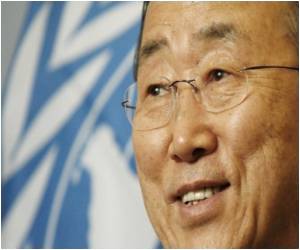The UN this week announced a June MDG review meeting in Tokyo. This is the conference that Japanese Prime Minister Naoto Kan at the MDGs Summit proposed that Japan convene in 2011 (see page 4, paragraph 1 of his speech).
One thing it may or may not discuss (depending on who you speak to) is what might replace the MDGs in 2015 which is likely to be one of the big global development policy debate of the next few years.
At the MDG summit last September the outcome document requested the President of the UN general assembly to organise a ‘special event’ in 2013 ‘to follow up on efforts made’. However, it is not yet clear exactly what this will mean. The outcome document also mandated the UN Secretary General to initiate a consultation process of what would come after 2015, and to recommend in his annual reports ‘further steps to advance the United Nations development agenda beyond 2015’.
It is possible though that there will be neither an agreement on any post-2015 framework nor an extension of the current MDGs.
Not surprisingly, the subject of what a new global framework might look like in detail is really starting to bubble up in debates.
The NGOs via GCAP are already discussing MDGs 2.0 and there was a workshop at the World Social Forum recently and blog convened by the UK NGOs. UNDP’s Helen Clark has it on her radar in a recent interview as does UNDP assistant SG, Olav Kjorven at UNDP in comments on a Guardian blog.
There’s also a global group convened by the International Red Cross and the Centre for International Governance Innovation (CIGI), a recent Lancet Commission report and one by International Alert and papers by MDG architects such as the former chair of the OECD DAC, Richard Manning and former UN official, Jan Vandemoortele (and a set of papers from a Brussels Forum on the ‘MDGs and Beyond’) as well as work at the Center for Global Development (for example, here in Global Policy, and here), a symposium at Harvard and – launching soon – CAFOD’s work on Voices of the South on the MDGs and post-MDGs.
The Lancet Commission’s work, suggest five principles for future goal setting as follows: a holistic approach to avoid gaps in goals; the inclusion of equity and an explicit pro-poor approach; the balancing of sustainability and productive growth; a broad international agreement developed locally to ensure ownership; and an approach based on a strong international institutional framework.
Vandemoortele has argued that the process of defining the post-2015 framework should include the need to formulate the goals more clearly as global targets; to maintain the measurability of goals; to focus on ends (rather than means); to embed equality of opportunity; to include interim targets; and to conduct global summitry differently to be more effective in reaching agreements. He also proposes a ‘Peer & Partner Group’ to be the global custodian of the MDGs in order to reduce undue donor ownership.
Clearly in the run-up to 2015 there will be numerous sets of principles and proposals (for example…). Will MDGs 2.0 be more of the same (the same MDGs missed by 2015 and extended deadline to 2020 or 2025), something that extends or builds on the MDGs 1.0 (different indicators to end poverty) or something completely different?
More importantly perhaps at this stage is what will shape the debate? Three themes will make the run up to 2015 completely different to the run up to 2000:
First, the deficiencies of MDGs will play some role – the deficiencies in specific indicators; questions over co-ownership and accountability; and lack of a pro-poorest focus (are MDG averages by-passing the poorest?) are on the table.
Second, the changing context – the increasing proportion of the world’s poor living in middle income countries; climate-resilient development; and shifting and new vulnerabilities due to demographics, food and energy prices and resource scarcity are all new issues any new deal will have to contend with.
Third, the shift of global politics – the role of the G20, emerging powers and new donors – this will crucially determine the outcome.
Given the various directions in which the discussion could go, one option will likely be a reaffirmation of the Millennium Declaration. The Declaration (which all UN member states agreed) consists of six ‘fundamental values’ including freedom, equality, solidarity, tolerance, respect for nature, and shared responsibility. Some of these are only partially represented in the MDGs, and a new agreement might seek to address this.
Additionally, updated thinking on improved indicators and institutions would make sense, as indeed would a more genuine sense of shared global ownership. This would hopefully lead to a more systematic integration into national development strategies and donor country plans.
The MDGs were never internationally agreed, the Millennium Declaration was. In light of this, perhaps in 2015 it is enough simply to restate the Millennium Declaration and to develop the Goals via political compromise – on would hope to end poverty rather than halve it. Indeed, one could imagine a combination of options as possibly most attractive and amenable to political trade-offs. This might mean retaining a core set of MDGs (income poverty, hunger, education, child mortality) and setting new realistic global goals with regional subgoals (that can then be translated into national goals).
In addition, one could have some key ‘One World’ indicators based largely on global public goods, such as eradication/vaccination/treatment of serious global diseases or mitigation of carbon emissions and adaptation to climate change, perhaps together with some global compact on results-based aid deliveries.
Whatever, finally emerges this debate will evolve rapidly over the next 18–24 months and is likely to play a role defining the global policy discourse as the MDGs did.




